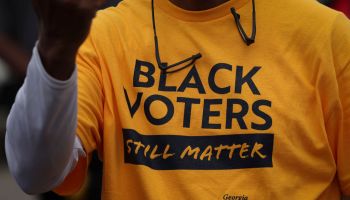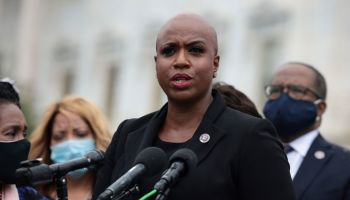Even with slavery so deeply entrenched in the American psyche during the 19th century, it was difficult to ignore a voice as strong and as bold as the one of Sojourner Truth. An American slave who actively supported abolitionist movements and became a staunch women’s rights activist, Truth’s message of equality and freedom, of compassion and the power of civic activism spoke to legions of Blacks and Whites, alike. Her legacy of civic participation and grassroots organizing became a cornerstone of the philosophies that guided many of today’s Black leaders into lives of public service.
Sojourner Truth was born into slavery in 1797 in New York. Originally Isabella Baumfree, she grew up with a dozen siblings under the mastership of a Dutch colonel. After the colonel’s death and the subsequent property shuffling, Truth’s family was separated. Approximately 9 years old at the time, was sold to a man named John Neely who beat her with metal rods and raped her daily.
Text continues after gallery …
Truth was sold a few more times before she finally escaped the tyranny of slavery in 1826. After changing her name to Sojourner Truth in 1843 she became a Methodist and began preaching about the need to abolish slavery.
The Northampton Association of Education and Industry in Massachusetts was an organization founded by abolitionists that also worked on women’s rights, peace, and religious tolerance. In 1844, Truth joined their cause and learned about the virtues of pacifism and the importance of pursuing peace alongside fellow members Frederick Douglass and William Lloyd Garrison.
The powerful ideologies of equality and freedom that Truth had learned and internalized during her time with the Northampton Association manifested themselves in her now-famous 1851 speech, “Ain’t I A Woman?” in which she laid her rights as a woman in this country alongside her white counterparts at the Ohio Women’s Rights convention.
Her belief that Blacks and Whites in America had to work together to achieve peace and equality informed her strategies while working for the Union army during the Civil War. Truth recruited Black soldiers to fight in the war and while working in the Freedman’s Hospital in Washington D.C., she would lay the groundwork for the principles of desegregation espoused during the Civil Rights Movement of the mid-20th century.
Her fight for the dignity, humanity and self-respect of African-Americans allowed for the paradigm shift required to eventually bring us to the inauguration of America’s first Black president.
RELATED STORIES
























